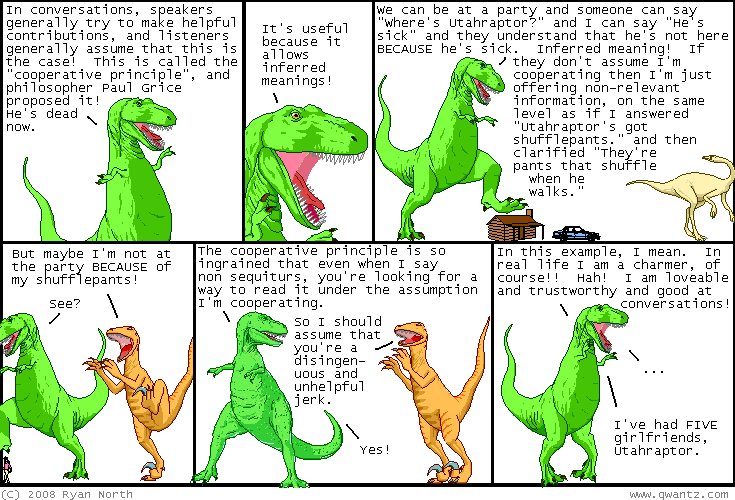Everyone knows that Samuel Taylor Coleridge wrote "The Rime of the Ancient Mariner" and "Kubla Khan". But it's less well known that he became one of the great curmudgeons of literary history. I thought of him when I read Motoko Rich's NYT article "Literacy Debate: Online, R U Really Reading?" (7/27/2008). And so for your online reading pleasure, I'll reproduce footnote 1 from Chapter III of his Biographia Literaria (1817).
For as to the devotees of the circulating libraries, I dare not compliment their pass-time, or rather kill-time, with the name of reading. Call it rather a sort of beggarly day-dreaming, during which the mind of the dreamer furnishes for itself nothing but laziness and a little mawkish sensibility; while the whole materiel and imagery of the doze is supplied ab extra by a sort of mental camera obscura manufactured at the printing office, which pro tempore fixes, reflects and transmits the moving phantasms of one man's delirium, so as to people the barrenness of an hundred other brains afflicted with the same trance or suspension of all common sense and all definite purpose. We should therefore transfer this species of amusement, (if indeed those can be said to retire a musis, who were never in their company, or relaxation be attributable to those, whose bows are never bent) from the genus, reading, to that comprehensive class characterized by the power of reconciling the two contrary yet co-existing propensities of human nature, namely; indulgence of sloth, and hatred of vacancy. In addition to novels and tales of chivalry in prose or rhyme, (by which last I mean neither rhythm nor metre) this genus comprizes as its species, gaming, swinging, or swaying on a chair or gate; spitting over a bridge; smoking; snuff-taking; tete a tete quarrels after dinner between husband and wife; conning word by word all the advertisements of the daily advertizer in a public house on a rainy day, &c. &c. &c.
Read the rest of this entry »


